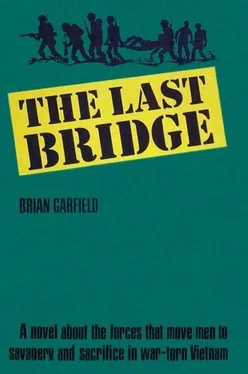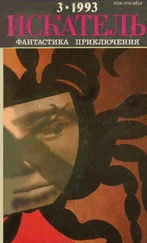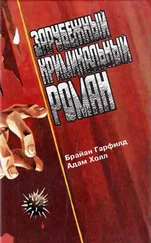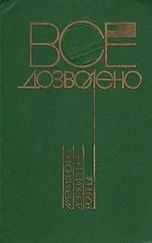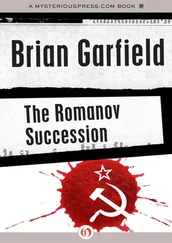“I shall hope for that,” she said.
He pulled her forward and kissed her with no excuse and no apology.
She said, “We are both afraid, then.”
He thought, In case of accident or death, notify ... whom? He said, “We’re a little lonely. At least I am.”
The girl turned her face against his chest. Her voice came up to him muffled against the cloth of his blanket. “All the men I have loved are dead. It is good that you do not stay here. Perhaps I would love you.”
“That isn’t what killed them.”
He felt the even rise and fall of her breathing. He did not understand her mystical notions. She made no sense to him; he did not know her. He said angrily, “Do you really think you’re a jinx?”
“A what?”
“The kiss of death. Do you believe your love killed your brother and your cousin and anybody else?”
“Of course I do not,” she said mildly. She added nothing to it.
He wondered what she would look like in a clean high-collared ao-dai. Through her shapeless clothes her body felt taut and hard. She said, “Tomorrow I will take you to the bridge, if that is what you wish.”
“It’s better for you to stay with your people.”
“Yes.”
He said, “We owe you a great deal. There aren’t words to thank you.”
“You have just spoken them,” she said. She uncoiled and got up. Her arm lifted. “That way, you must go over the mountain. When you reach the far side, you will see across the valley to the river Sang Chu and the mountain of the railroad bridge. If you walk slowly, you will need six hours to reach it. There will be many soldiers on the way, and after you reach the bottom of the mountain you must be careful of land mines and traps.”
He stood up. She said, “We are not so very different, you and I. I have many regrets, Colonel. Just now, one most of all.” She gave him a brief smile. “Goodbye.”
“Goodbye, Lin Thao.”
She walked across the clearing. She would reach her village before dawn. He watched her until she disappeared.
He went into the cave and felt his way to the radio kit and took it outside; he read his code book by the glow of his cigarette. He used a telegraph key to transcribe his message onto a miniature tape recorder. After five minutes’ work he attached the recorder to a radio transmitter, connected its batteries, and set a small explosive charge. He took a small packet out of the kit and filled a balloon with helium from a pressure tank no bigger than a pack of cigarettes; he suspended the transmitting apparatus from the balloon and watched it soar away.
The transmitter would broadcast its message in half an hour, with the wind taking it across the jungle valleys; at the end of the broadcast the small charge of detonating cord would explode the mechanism into a thousand pieces.
He sat outside the mouth of the cave with his arms wrapped around his knees. The moon was moving west, and he watched the small balloon diminish into the sky.
McKuen sat in the branch of a tree and listened to the soldiers move through the rain forest. He thought, Odds are I’ll never be seein’ daylight , and he grinned. The soldiers were moving away; they had not found him. But the woods were full of them, and he knew they would be back.
He thought he heard a noise. He held his breath, listening. No sound reached him. Flame burst in his chest; he had to breathe. He turned his head slowly. An earthy scent, dark and damp and cold, issued from the jungle. His lips pursed, and he squinted a little. Suddenly he distinguished something moving, almost directly in front of him and not far off. His breath caught in his throat. There was a dry rustle; there was a tiny metal click. McKuen pointed his service automatic at the moving shadow.
The faintest of moonlight poked down through the treetops. A shaft glanced off the metal of a military helmet or perhaps a gun barrel. The figure moved closer.
McKuen pulled the trigger.
The automatic roared in his fist, knocking his hand up. It seemed louder than it should have been. It made a brief flash of light. The soldier fell down and started to crawl around. Somewhere in the distance, boots started to crash through the undergrowth. McKuen jumped down out of the tree and felt quick pain shoot up his bruised leg from the kneecap. He dragged himself over to the struggling soldier and shot the man in the face.
He squatted frozen during a terrified span of time. The soldier died with a bubbling sound. McKuen took away the man’s submachine gun and ammunition magazines; he spun away in panic and ran blindly through the jungle. His foot caught on an exposed root: he landed belly-flat in the mud, bruising his face. His hands clawed the earth. The chopper was hard and cold, underneath him; he rolled off and got it in his grasp and peered around him with wide eyes.
Voices called querulously back and forth across the night. McKuen rubbed the stubble along his jaw. Everywhere he looked, he thought he saw figures moving through the woods. Paralyzing fear rippled through him, gripping him by the groin. He fingered the cold submachine gun and looked around furtively. What now? Do I sit and wait and win the prize ?
“To hell with that,” he muttered. Arrogant temper pressed his lips together. He moved away from the dead man and, abruptly, a remembered deviltry sparkled in his eyes. He exhaled a fluttering gust of air. The jungle hummed with a light wind, and a wicked flame leapt in him. He stabbed his legs into the ground and broke into a wild run.
Up and running, he wondered why he was doing this. He felt like a pinned insect. He dropped flat.
Far to his right a rifle opened up, steadily pounding the air. He could not see its muzzle flame. It did not seem to be directed at him. He got up and ran across an open quagmire of mud and went into the trees like a racing diver. He hit flat on his chest and slid across slimy liquid; he scrambled past a tree and lay with blood pumping red in his eyes and his body heaving. The gunfire stopped. Someone was moving through the jungle, and he looked around until he thought he saw something; he trained the submachine gun on it and held the trigger back.
The gun rocked against him, coughing, and in the blinking flashes he saw a helmeted soldier collapsing a joint at a time in little jerky moments of light like a very old silent moving-picture. And then darkness and silence again.
Hostile bullets broke the night up, seeking him furiously. They rattled around the jungle, cut down a branch overhead, and dropped the branch on him. He huddled with his knees drawn up against his chest, his back to a tree. The guns quieted down, dissatisfied. An insect crawled over the back of his hand. The afterglow of one muzzle’s flame remained in his vision, and he tried to remember exactly where it had been in the woods. He lifted the chopper slowly and aimed it in that direction and held it, not firing, not knowing what he was going to do until someone stepped on something that snapped. The rifle he had looked for fired. McKuen, sitting still, heard a man’s scream of pain. It echoed in his mind and he thought, They’ve killed one of their own men. He heard the scratching of slow movement and realized that the soldier was not dead, but off there bleeding. The soldier’s moan came to McKuen’s ears. He tried to put it away, but after a little while he lifted the chopper’s muzzle half an inch and pressed the trigger. He bit his tongue and swept the jungle with fire until the chopper ran out of bullets.
Like an ejaculation, the burst of fire left him limp and uninterested. Nothing stirred. The chopper was hot under his hand; smoke bit into his nostrils. He released the magazine and replaced it. The dying soldier moaned once, and was still. McKuen became violently sick. He retched into the mud.
Читать дальше
